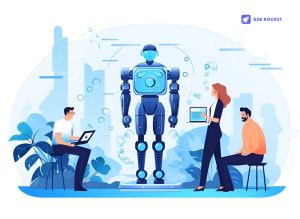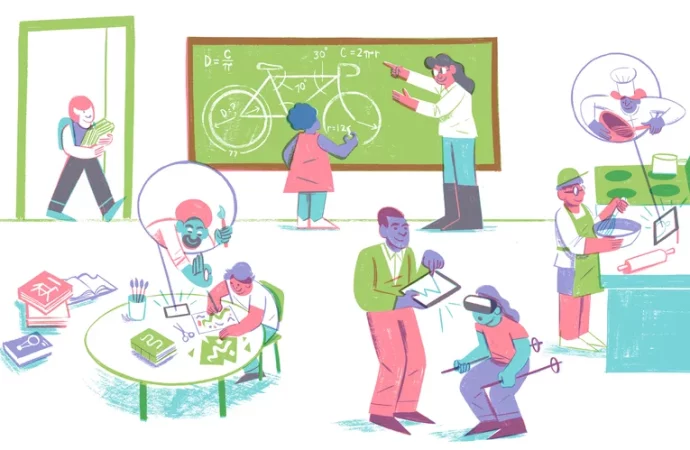Introduction: Meet Dr. Sophia, an esteemed educator and visionary leader in the field of educational technology. With over two decades of experience in academia and a passion for leveraging cutting-edge tools to enhance learning, Dr. Sophia is here to guide us through the transformative potential of AI in education. AI in Education Understanding Defining personalized
Introduction:
Meet Dr. Sophia, an esteemed educator and visionary leader in the field of educational technology. With over two decades of experience in academia and a passion for leveraging cutting-edge tools to enhance learning, Dr. Sophia is here to guide us through the transformative potential of AI in education.
AI in Education Understanding
- Defining personalized learning and its significance in modern education.
- The role of individualized instruction in catering to diverse student needs.
- Examples of personalized learning approaches and their impact on student outcomes.
The Rise of AI in Education
- Introduction to artificial intelligence and its application in educational settings.
- How AI algorithms analyze student data to create customized learning paths.
- Case studies highlighting successful AI implementations in schools and universities.
Benefits of AI-Powered Personalization

Image by:.b2brocket.ai
- Enhanced student engagement and motivation through tailored content delivery.
- Improved learning outcomes and academic performance.
- Empowering educators with real-time insights and data-driven decision-making.
Challenges and Considerations
- Addressing concerns around data privacy and ethical use of AI in education.
- Overcoming barriers to adoption, including cost, training, and infrastructure.
- Balancing the use of AI with traditional teaching methodologies to ensure holistic learning experiences.
Future Trends and Opportunities
- Predictive analytics and adaptive learning systems shaping the future of education.
- Collaboration between AI developers, educators, and policymakers to drive innovation.
- Expanding access to quality education globally through AI-enabled platforms and resources.
Integrating Visual Elements:
Visual Table: Key Points of AI in Education
| Aspect | Description |
|---|---|
| Personalized Learning | Tailored instruction based on individual student needs and learning preferences. |
| AI Applications | Adaptive learning systems, intelligent tutoring, automated grading, and more. |
| Benefits | Enhanced student engagement, improved outcomes, and empowered educators. |
| Challenges | Data privacy concerns, adoption barriers, and maintaining pedagogical integrity. |
| Future Trends | Predictive analytics, global accessibility, and collaborative innovation. |
Comparative Table: AI vs. Traditional Learning Methods
| Features | AI-Powered Learning | Traditional Learning |
|---|---|---|
| Customization | Personalized learning paths | Uniform curriculum for all |
| Feedback | Real-time insights and feedback | Delayed or generalized feedback |
| Flexibility | Adaptive to individual pace | Fixed schedules and pace |
| Resources | Access to vast online resources | Limited to textbooks and lectures |
| Scalability | Scales to accommodate large cohorts | Limited by classroom capacity |
Conclusion:
In conclusion, AI presents a promising avenue for revolutionizing education through personalized learning experiences. While challenges exist, the benefits far outweigh the drawbacks, offering educators and students unprecedented opportunities for growth and success. As we embrace the future of AI in education, let us remain mindful of ethical considerations and strive to harness its potential for the betterment of learners worldwide.
Knowledge Source: Dr. Sophia Johnson is a renowned educator and researcher specializing in educational technology and personalized learning. With a Ph.D. in Educational Psychology and numerous publications in leading academic journals, Dr. Johnson is a trusted authority in the field. She currently serves as a professor at the Institute of Educational Technology, where she leads research initiatives focused on AI integration in education.
















